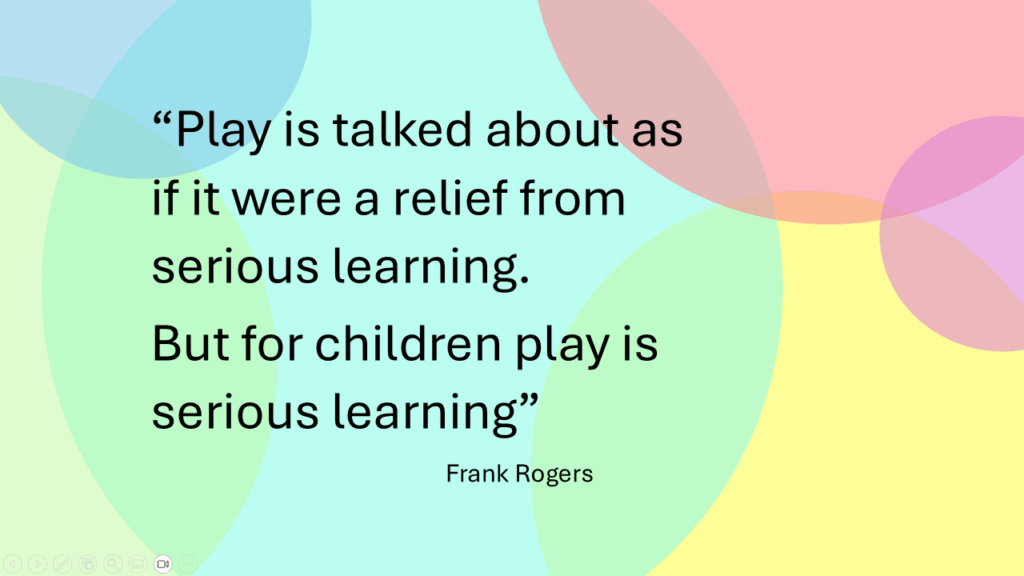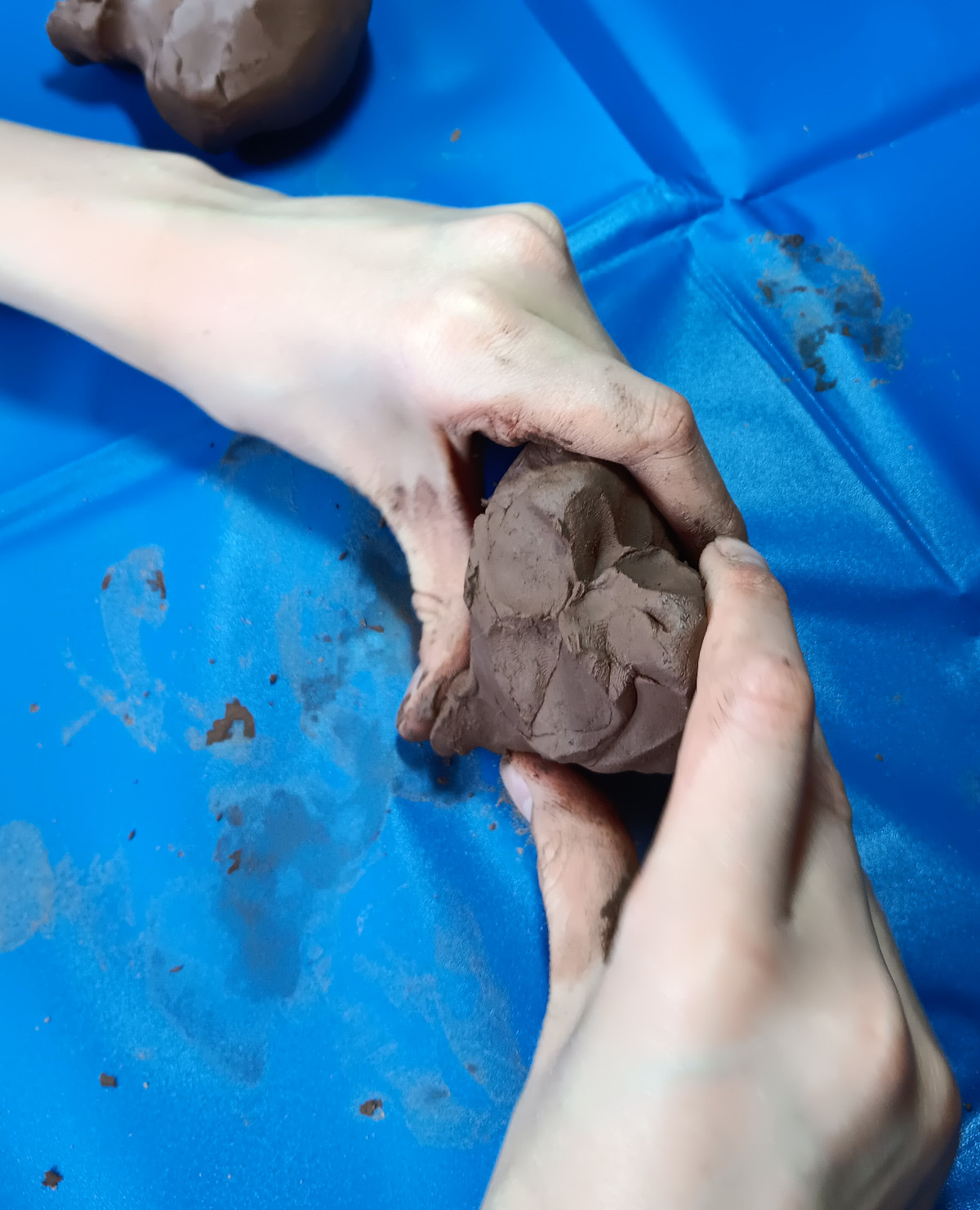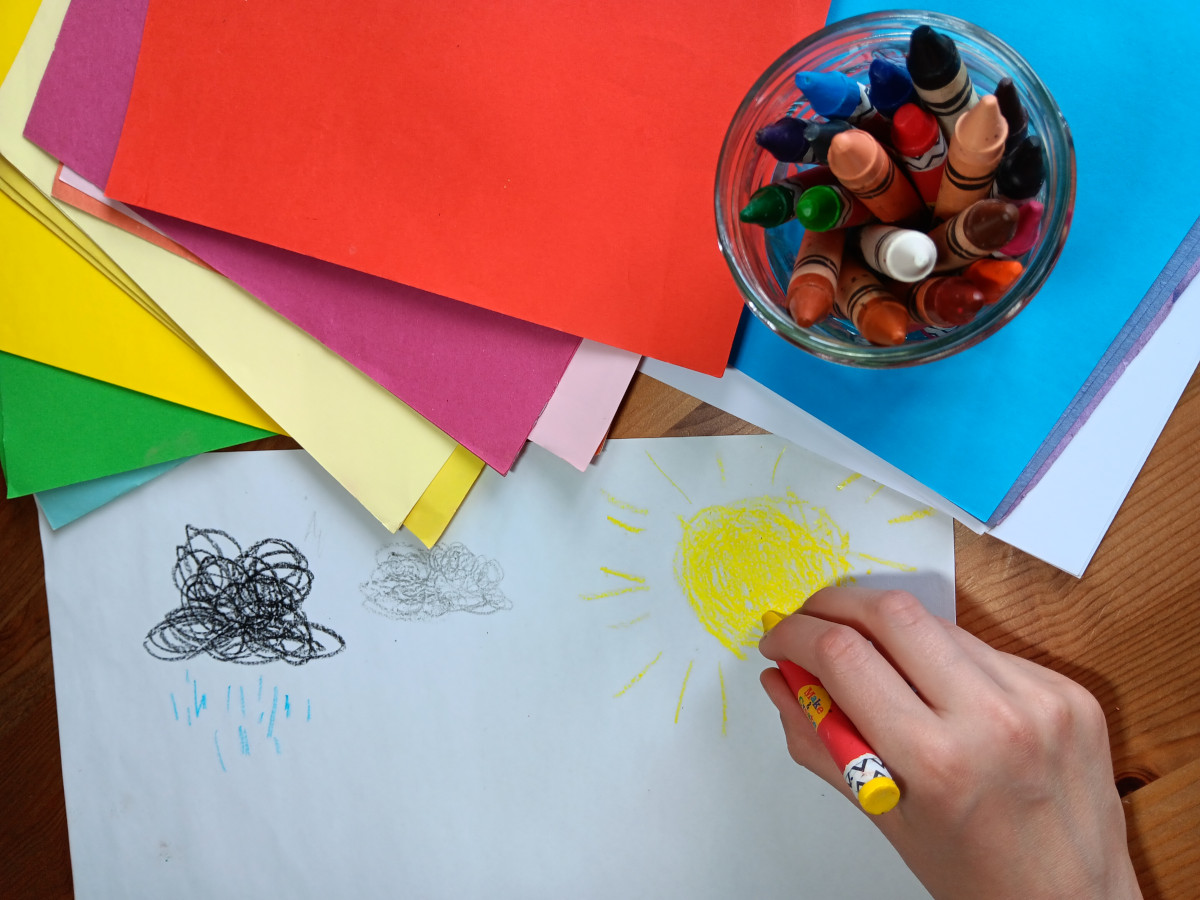Play Therapy
Enabling healing through play and creativity
Children face a wide range of challenges and pressures, at school, at home and in society generally.
Play Therapy offers children a safe means to explore, express and process difficult emotions, and to develop important skills for life.

Through Play Therapy, children can enhance their sense of self, their capacity for self-compassion, and their ability to empathise. This enables them to develop healthy relationships, emotional wellbeing and a curiosity for learning.
What is Play Therapy?
Play Therapy is an evidence-based form of psychotherapy offered to children aged 4-13 either individually or in small groups, where appropriate.
During therapy, children express and explore their inner thoughts and feelings through play and creative arts. This is guided by a trained Play Therapist, who ensures safety and supports the child to process and integrate their difficult thoughts, feelings and experiences, to enable healing and growth.

Key elements of Play Therapy
Child-led: The child sets the pace and decides what they what to do or say during sessions. As the therapist, I will respect the child and respond to their needs.
Consistent: Therapy is always offered on the same day, at the same time, in the same room, with the same play kit, and with the same therapist – me!
Confidential: Therapy sessions are confidential, to respect the child’s right to privacy. I will not share what the child does or says during therapy, unless there is a safeguarding concern.

What sorts of problems does Play Therapy help with?
Play Therapy can help children manage a wide range of challenges that may be causing them to feel overwhelmed, including:
- worries and anxiety
- grief and loss
- anger and frustration
- social and friendship difficulties
- trauma
- family challenges, e.g. parental separation, sibling illness
- big changes, e.g. moving house or school
Frequently asked questions
What ages of children do you work with?
I work with children aged 4 to 13, or who are developmentally this age even if they might be older biologically.
How long will my child need therapy for?
I offer Play Therapy for a minimum of 12 sessions plus an introductory visit session.
I meet with the child’s parent(s) before therapy starts, after therapy ends, and at least once during therapy (after session 8) to review how therapy is going. The review meeting helps us think about whether therapy is helping, and whether additional sessions of therapy may be needed. If more sessions are appropriate, I will meet with parents again four sessions before therapy is due to end for their child.
For some children, e.g. where they have had a traumatic experience, a longer series of therapy sessions is likely to be needed.
Are Play Therapy sessions confidential?
To respect your child’s privacy and the progress of their psychotherapy process, I will not share with you what your child has done or said during their therapy sessions.
When we meet to review how therapy is going, I will let you know whether they are engaging with their therapy. We can also talk broadly about ways you might be able to help support your child based on what has come up during their therapy.
If your child wants to, they can tell you whatever they like about what they do in their therapy sessions. If they choose not to tell you anything or not tell you much, please do not worry or be offended. Often they are working through something and may not have the words to communicate or explain that to you just yet.
What is Group Play Therapy?
Group Play Therapy can be offered to groups of 4-6 children. who are the same age, for a pre-agreed number of sessions, where the children in the group are all struggling with the same issue, e.g. anxiety, friendship issues, parental separation, and where this is appropriate (taking into account other factors specific to each child and their situation).
A lot of careful thought goes into creating a group who have the potential to work well together in therapy, to ensure this can be a safe and supportive environment for each child.
Group Play Therapy can be a helpful way of exploring challenges alongside peers and experiencing being part of a group, to develop increased awareness of self and others, and build a range of new skills.
Where, when and how much?
Where: I can work within schools where there is a supportive school team and an appropriate room, and I also offer sessions from a venue in Witney.
When: Sessions are offered during the school day, and during term time only. I can let you know what days and times I currently have available when you get in touch.
How much: My standard charge is £60 per meeting or individual Play Therapy session.
Group Therapy sessions are charged slightly differently, based on the number of children in the group.
For schools, I will am able to offer a reduced rate per session where I will be providing more than two individual sessions or more than one group session a day. The rate can be further reduced where I am working a full day in the school (i.e. if I am working with at least four children individually, or at least three children individually and one group).
If I am hiring a room to offer sessions, then I also have to pass on that cost, so therapy offered at the venue in Witney currently costs £75 per session.
All of the details about payment, cancellation and other arrangements are included in the contract that I will send you. I can also talk you through all of the details before you decide whether to sign up and commit to therapy.
Parents/carers: what happens next if I'm interested in therapy for my child?
Get in touch: contact me through this website and we can arrange a quick online call so that you can ask any questions and I can talk you through what’s involved.
Referral form: To prepare for your child to start therapy, I will ask you to complete a referral form and an assessment to help identify areas where your child is struggling at the moment. Where appropriate, I can contact your child’s school and ask them to complete an assessment as well.
First meeting: We’ll arrange a time to meet together at the venue without your child, to discuss your child’s experiences, issues and difficulties in more detail.
Child’s introductory visit: We will then arrange for your child to come for a first visit, to meet me and see the play room, before they have their first therapy session.
Schools: what happens next if we're interested in therapy for our children in our school?
Get in touch: contact me through this website and we can arrange a time for me to visit your school and talk about what’s involved in hosting therapy in your school.
Due to the time required for me to travel to school and set up and down my kit, I can only agree to work with a minimum of one group of children (group therapy) or two individual children a day. I am generally unable to agree to work in a school that only wants therapy for one individual child a week.
Preparatory arrangements: if you would like to go ahead, we will formalise what we have agreed about how play therapy will be offered in your school, and will arrange a time to meet with relevant staff, including your DSL, and also usually your Home School Link Worker, SENCo, nurture and wellbeing team (e.g. ELSA) and front office team.
I do not charge for any of these meetings and am also happy to run a free information session for interested staff, to explain what play therapy is.
Referrals: I will work with school to support completion of referral paperwork for children being considered for therapy, and to talk to the child’s teacher to understand where they see the child struggling and their concerns for the child.
Parent meeting: I will need to meet with the child’s parent(s) to explain what play therapy is, obtain their consent to their child receiving therapy, and to get some details about the child’s experience and context and the symptoms the parent(s) see at home.
Child’s introductory visit: I will then meet the child for an introductory session, where they can see the kit set up in the room and find out what play therapy is. If the child does not want to have therapy, it will not go ahead.
How can I support my child when they are having therapy?
Basic ‘do’s and ‘don’t’s: When we meet before therapy starts, I can talk you through some guidelines for ways you can support your child when they are having therapy. This includes, for example, not asking them what they did in their sessions, and not asking me whether they were “good” or well behaved in their session.
Therapy is a very different space for a child and I do no need them to behave in a particular way, or to be “good” during sessions. I will set boundaries based on safety, but otherwise I will allow them as much freedom to explore and express themselves as I can.
Therapy can be a bumpy ride: When your child is having therapy, they may explore and face some very difficult emotions and memories. It is worth being prepared for your child’s external behaviours to potentially get bigger and “worsen” as they are working through this.
Review and catch-up meetings: I aim to work with all parents as partners in supporting their child. We will have at least one formal review meeting part way through your child’s therapy, to consider how things are going for them. It is also great for us to be in regular contact, so that you can let me know if something happens or changes for your child.
Parent coaching: This may also be a good time for you to think about your approach to parenting and what help you may need to enable you to attune to and support your child. Parent coaching is one way of exploring this.
In the parent coaching sessions I offer, we will work together to consider your parenting experiences so far, and any areas that feel difficult or where you would like to see change.
I am happy to work with you whether or not your child is receiving therapy, and am open to providing support to extended family as well, e.g. grandparents. Please contact me through this website if you are interested.
Other support: You may realise that you would find therapy or counselling helpful for yourself at some point, to process your own experiences and consider your own emotional challenges.
You may also become aware of other needs that you have for support or resources. Where I can share resources or put you in contact with others who can help, I will be happy to do so.
Interested?
Free introductory chat: Get in touch if you would appreciate a short, introductory, no-obligation chat to find out more and consider whether Play Therapy might be right for your child.

“I have seen huge changes for my son as a result of seeing Kate for Play Therapy.
When he started, he would cry a lot at the smallest thing, and said he had no friends.
Now he is so much more confident, happy and comfortable being himself. He’s even doing better in his school work.”
Mum of 6 year old
